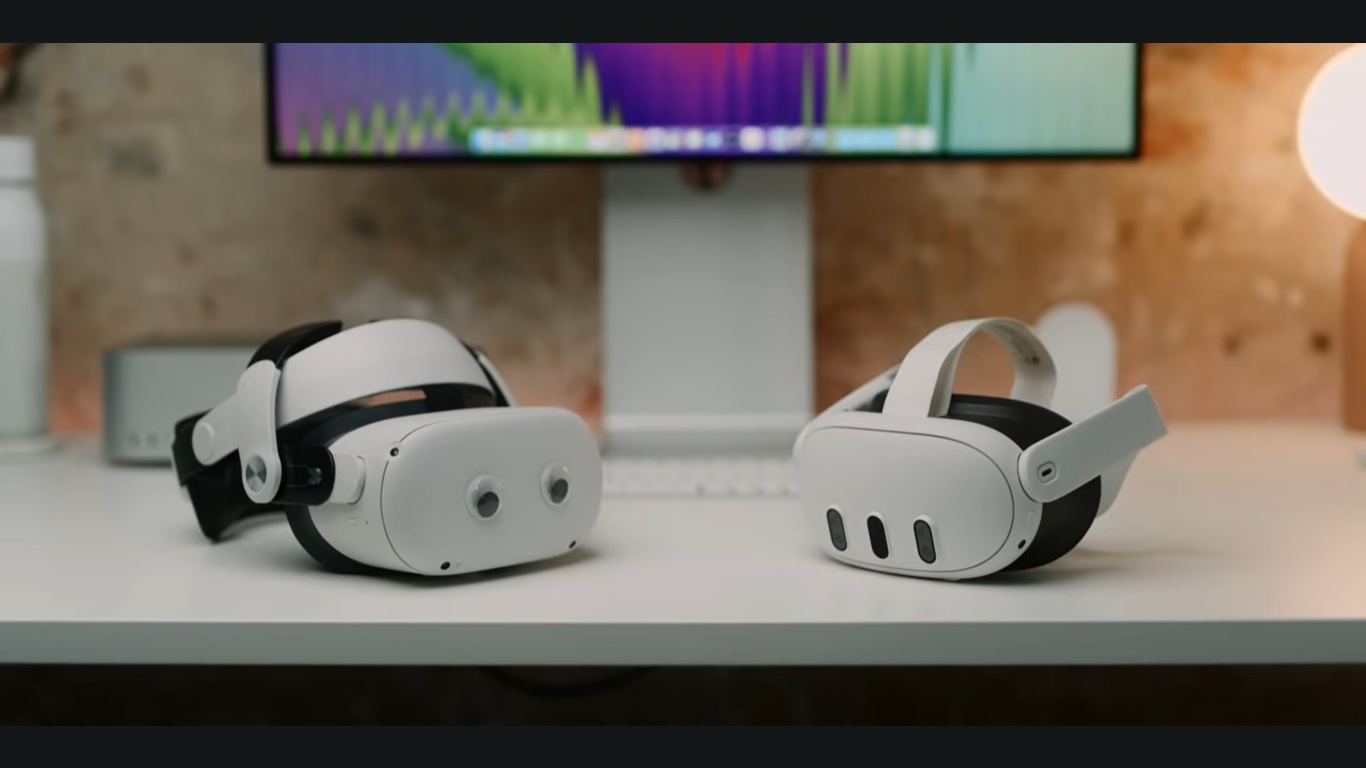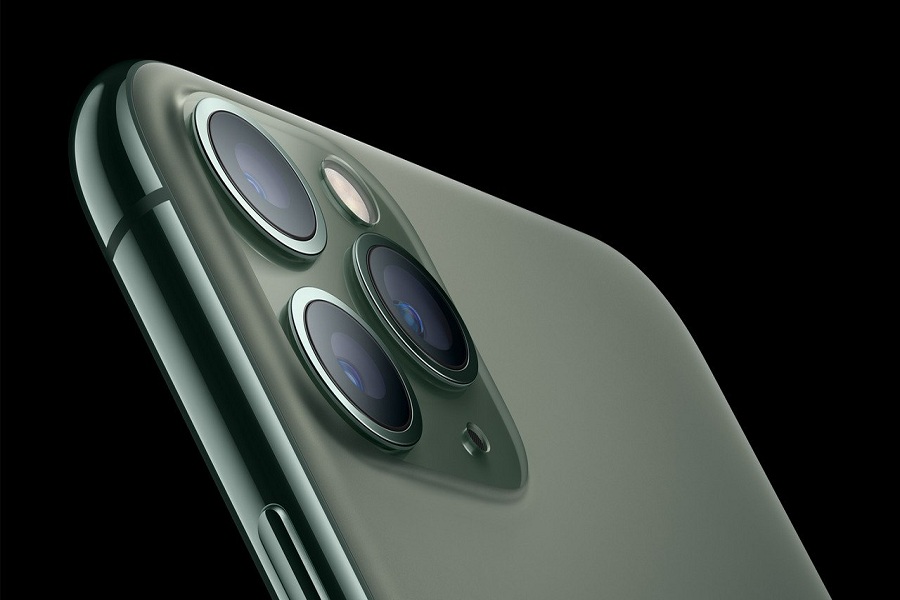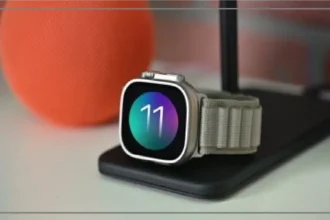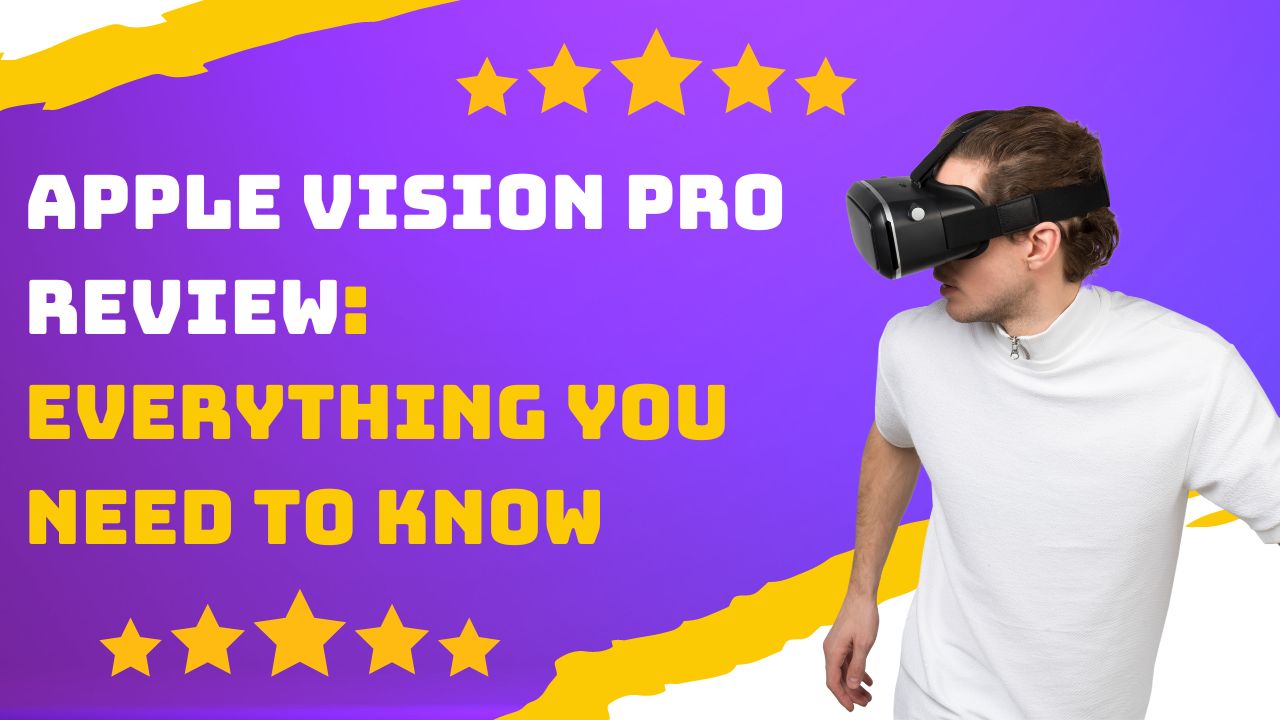The Apple Vision Pro is Apple’s first entry into the mixed-reality headset market. As Apple’s first major new product category in nearly a decade, it aims to revolutionize spatial computing through its innovative design and features.
As customers are getting their deliveries since February 2, 2024, I think it’s the right time to review this innovative headset from Apple.
Performance
The Vision Pro is powered by Apple’s custom M2 chip with a 10-core GPU, providing significant processing power in a compact form factor.
Combined with the R1 image processing chip, the Vision Pro delivers low latency visuals to its ultra high-resolution micro-OLED displays.
With a display resolution exceeding 4K per eye and a pixel density of over 60 pixels per degree, the Vision Pro provides unparalleled visual fidelity.
This level of clarity and detail brings digital content to life unlike any other headset currently available.
To enable intuitive control, the Vision Pro utilizes advanced eye tracking with precision down to 1 degree of accuracy. This allows for natural hands-free navigation and interaction. Hand tracking is also supported for more direct manipulation of virtual objects.
Performance is snappy and lag-free for both native apps and iOS apps running in virtual windows. The Vision Pro can also mirror a Mac’s display at up to 4K resolution.
Design
True to Apple’s design ethos, the Vision Pro features an elegant and compact industrial design. Weighing just 1.3 pounds, the curved visor and adjustable headband provide a comfortable fit for extended wear.
The lightweight aluminum alloy frame houses dual high resolution displays with a custom 3D lens system offering an expansive field of view.
Four world facing cameras combined with lidar scanning enable precise tracking of the user’s environment for stable augmented reality experiences.
Apps and Content
The Vision Pro allows users to access a vast library of immersive 3D content. Through Apple’s partnerships across entertainment, gaming, fitness, and more, there will be a wide selection of apps at launch.
Users can enjoy spatial video in full 3D from leading studios or view professional sports with courtside presence.
Productivity apps allow working on virtual desktops with multiple screens. Games become more engrossing when visually filling the room around you.
Apple’s ecosystem also enables seamless integration with iPhone, iPad, and Mac. This continuity across devices unlocks unique cross-platform capabilities found only in Apple products.
Cameras and Sensors
A key aspect of mixing AR with the real world is accurate spatial mapping and understanding. The Vision Pro has a LiDAR scanner, multiple external cameras, and inward-facing eye tracking cameras to make this possible.
The LiDAR scanner measures light reflections to map surfaces up to 5 meters away down to the centimeter. The 4 external cameras handle tracking and positioning, while the 4 eye tracking cameras follow your gaze to inform rendering.
There are also video cameras on the front to capture photos and videos from your perspective. A unique spatial photo mode anchors objects and people in 3D space rather than a flat image.
Comparison to Other Products
The closest competitor to the Vision Pro is Meta’s Quest Pro headset. While similarly feature-rich, the Quest Pro is focused more on productivity and enterprise use cases. The Vision Pro contrasts this with a greater emphasis on consumer entertainment and lifestyle experiences.
The Vision Pro also compares favorably against VR devices like the PlayStation VR2. With its all-in-one design untethered from gaming consoles or PCs, the Vision Pro promises greater flexibility and accessibility.
Overall the Apple Vision Pro brings innovative technology paired with Apple’s trademark user-centric design. For those eager to experience the future of spatial computing, the Vision Pro delivers magical, never-before-seen ways to interact with digital content.
User Experience
From the moment it slips over your head, the Vision Pro surprises with its light weight and comfort. The materials feel premium and durable, yet disappear from notice during use.
Interacting via eye and hand tracking feels instantly natural, with responsive menus and fluid navigation. Apps launch and switch as effortlessly as on an iPhone, reinforcing that “it just works” experience Apple is known for.
Once immersed in a game or video, the room around you fills with vibrant 3D objects and scenery. You forget you are wearing a device at all. The Vision Pro melts away, leaving behind only the magical feeling of being transported into another world.
After over an hour of continuous use, some pressure builds around the cheeks and bridge of the nose. But a quick adjustment of the headband alleviates this temporary discomfort.
Battery life averages around two hours of active use. While not ideal for all day wear, it suits the Vision Pro’s positioning as an ultra premium accessory for visual computing.
As with all first generation products, improvements will surely come in later iterations.
Software and Interface
The Vision Pro runs on a new platform called visionOS. Navigation happens through gestures, eye-tracking, hand tracking, and voice commands.
Menus and interfaces float in your environment instead of taking up the whole display. You can resize windows and position them anywhere in 3D space.
A digital crown provides additional input when more precision is needed. Apps like Messages, Mail, Calendar, and Safari have Vision Pro-optimized versions with spatial interfaces.
Third party apps are more limited at launch but will expand over time. Usage spans entertainment, communication, creativity tools, utilities, and productivity
Price and Availability
The Vision Pro starts at $3499 USD for a model with 256GB storage. Additional storage and accessories like prescription lens inserts, batteries, and chargers cost extra.
After launching in the US, the Vision Pro will roll out globally later in 2024. It represents a major technological achievement for Apple and sets the stage for even more advanced AR devices.

Apple Vision Pro Review
The Apple Vision Pro is Apple’s first entry into the mixed reality headset market. As Apple’s first major new product category in nearly a decade, it aims to revolutionize spatial computing through its innovative design and features.
Conclusion
While expensive, the Apple Vision Pro ushers in a new computing paradigm focused on immersive spatial experiences. Its unmatched industrial design, visual fidelity, and intuitive interface may make it AR’s first killer device.
While refinements remain for future versions, Apple’s ambition is unmatched in blending hardware and software innovation.
For those seeking the bleeding edge of technology, the Vision Pro provides a small window into the exciting future of mixed reality. Even in its first incarnation, it feels like science fiction come to life.







